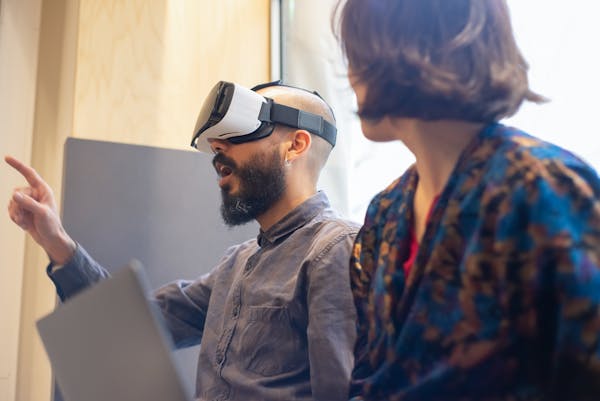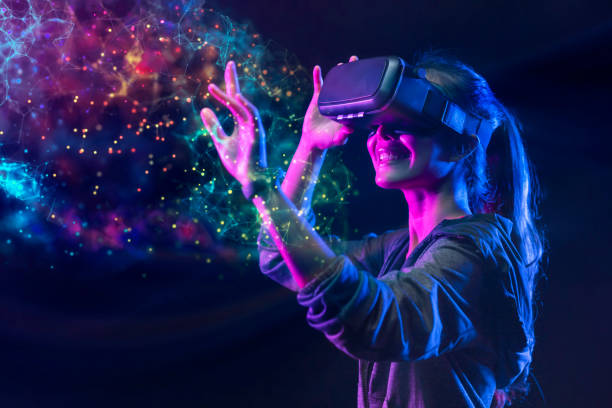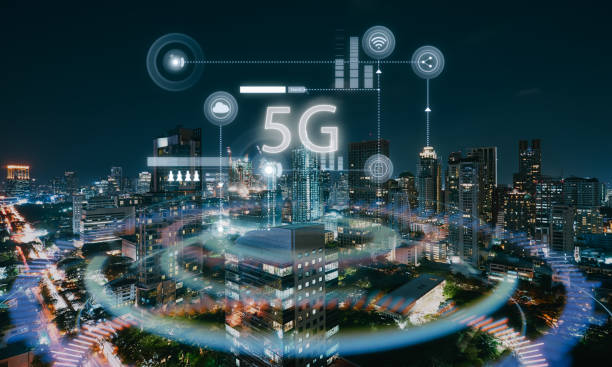The world has witnessed unprecedented advancements in artificial intelligence (AI) and frontier technologies in the last ten years. What was previously a fantasy became an impending reality at breakneck speeds.
From intelligent systems that organize our schedules to AI-based healthcare diagnostics that save lives, the effects of these technologies cannot be dismissed. By 2025, new technologies and AI are no longer futuristic ideas —they're driving forces remaking economies, industries, and societies across the world.
From intelligent systems that organize our schedules to AI-based healthcare diagnostics that save lives, the effects of these technologies cannot be dismissed. By 2025, new technologies and AI are no longer futuristic ideas —they're driving forces remaking economies, industries, and societies across the world.
In this article, we will talk about how AI and other advanced technologies are changing our world, their pros and cons, and what the future of human beings might be as we integrate them more into our lives.
The Rise of Artificial Intelligence
Artificial intelligence refers to the imitation of human intelligence in machines that can think, learn, and solve problems. By 2025, AI has evolved way beyond chatbots and image recognition systems. Today, it is a critical driver in healthcare, finance, education, transportation, and entertainment sectors.

AI is being incorporated into:
- Smart homes, with devices like thermostats, lights, and machines learning user habits to optimize energy use and convenience.
- Healthcare systems, in which AI applications assist doctors in diagnosing illnesses such as cancer, heart disease, and even rare genetic conditions with breathtaking accuracy.
- Financial services are employed for fraud detection, algorithmic trading, and personalized financial guidance.
- Autonomous cars, making roads safer and reducing traffic jams.
- Content generation, like articles, videos, and computer graphics generated by AI models.
The flexibility of AI makes it one of the most consequential technological advances of the 21st century.
New Technologies Revolutionizing Industries
Aside from AI, several other nascent technologies are changing business operations and daily life. Below is a summary of some of the most significant:
1. Quantum Computing
Quantum computing applies the principles of quantum mechanics to solve complex issues at speeds unattainable with regular computers. Although still in its early stages, companies like IBM, Google, and D-Wave are competing to develop quantum machines that would revolutionize drug discovery, climatic prediction, encryption, and financial modeling.
2. Blockchain Beyond Cryptocurrency

Initially used as the basis for digital currency like Bitcoin, blockchain technology is now being used to extend to supply chains, digital identity, and secure data storage. Being tamper-proof and decentralized, it encourages transparency and trust in various business processes.
3. Virtual Reality (VR) and Augmented Reality (AR)

AR and VR technologies are transforming the way digital content is interacted with. In 2025:
- AR is revolutionizing shopping experiences, allowing consumers to try out products virtually before purchase.
- VR is revolutionizing education and training, providing engaging simulations for learners and professionals, ranging from simulated surgeries to flight simulators.
4. 5G and Beyond

With the rollout of 5G networks and research into 6G, internet connectivity has never been stronger. Faster, more reliable connections enable smart cities, autonomous vehicles, and the Internet of Things (IoT) to flourish.
Benefits of AI and Emerging Technologies
The integration of these technologies holds numerous benefitsincludingg:
- Increased efficiency and productivity across industries.
- Enhanced decision-making, based on data analysis and AI suggestions.
- Enhanced health outcomes, with faster and more precise diagnoses.
- Increase sustainability through better energy management and smart agriculture.
- More educational opportunities, with learning made more accessible and interactive.
Challenges and Ethical Issues
As revolutionary as these technologies are, they come with immense challenges:
- Job displacement: Automation has the potential to eliminate millions of traditional jobs, primarily in manufacturing, logistics, and customer customeservicees.
- Data privacy and security: With AI systems handling so much personal data, data privacy and security become top issues.
- Bias in AI: Biases in the data that AI systems are trained on are inherited, leading to discriminatory effects across fields like hiring, lending, and law enforcement.
- Ethical dilemmas: Development of autonomous weapons and surveillance technology raises ethical issues about the responsible use of AI.
To resolve these challenges, governments, technology companies, and international bodies must all work together to create rules, ethics, and public awareness campaigns.
What the Future Holds
In the future, AI and advanced technologies are likely to change our lives in new ways. Specialists forecast:
- AI-based healthcare systems are able to forecast and detect diseases when there are no symptoms yet.
- Intelligent cities with AI-based traffic control, waste management, and security systems.
- Quantum computing solving in seconds task that will take modern-day supercomputers years to solve.
- AI loneliness apps offer emotional support and companionship for old people and lonely individuals.
Though these developments carry extraordinary promise, careful development and ethical control will be crucial in guaranteeing they benefit humanity as a whole.
The rapid development of AI and emerging technologies in 2025 is one of the most transformative periods in human history. While transforming industries and societies, these technologies bring about extraordinary opportunities and outstanding challenges. Embracing their benefits while meeting ethical and social challenges, we can harness the technologies to construct a more effective, just, and prosperous world.







Comments(0)